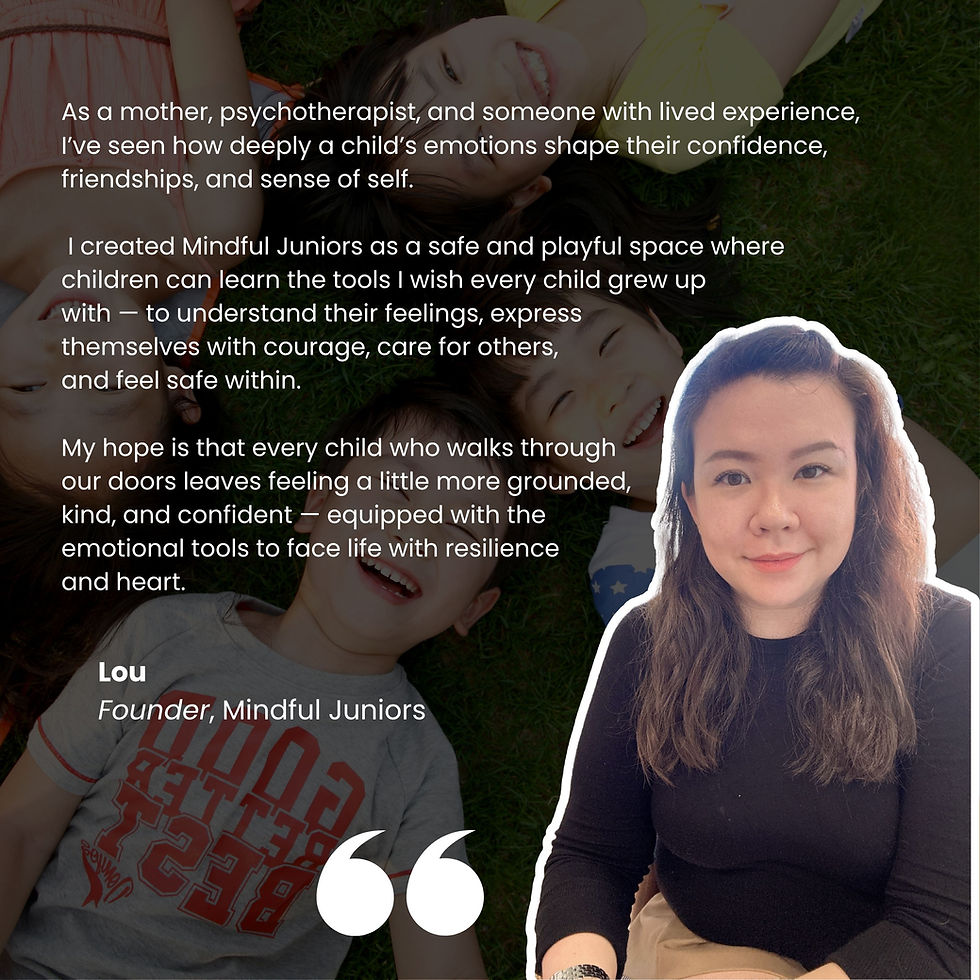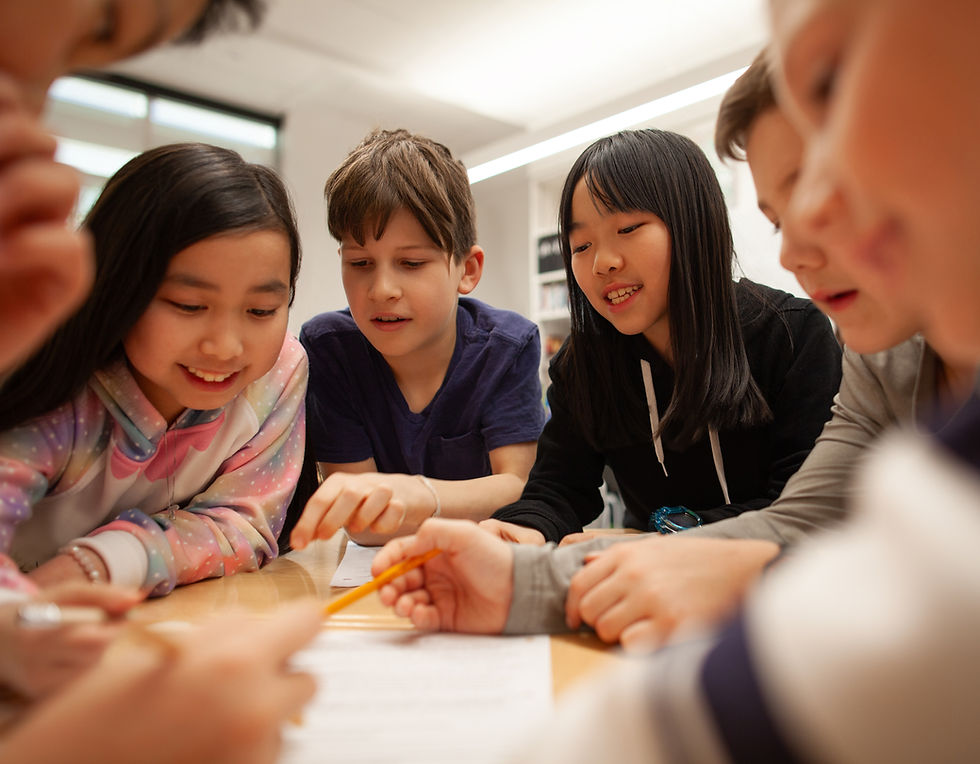Building character and emotional intelligence for life
For kids aged 5 to 16
Aligned to Singapore’s National Education frameworks (NEL Competencies and SEL outcomes)

Mindful Juniors help children grow emotionally by giving them practical tools and experiences grounded in psychology and neuroscience to understand and manage their feelings, build character and form positive relationships.
Mindful Juniors Equips Your Child.
Emotional Intelligence & Regulation
Social Awareness & Relationship Skills
Values & Character Formation
Learning and
brain-based skills
Mental Wellbeing & Resilience

Get started with a parent-child discovery session.
An interactive non-chargeable introductory parent-child session to understand your child, hear you out, answer your questions, and ensure Mindful Juniors is the right fit.
Then, start building the skills that apply to all areas of life.
The Big Feelings Club
Evidence-Based Progress and Evaluation
Progress is measured against age-appropriate learning goals set for each term. Progress is tracked across; at enrolment, mid-programme and at the end. Facilitators also record observations every session, with additional feedback from children and parents, ensuring every child’s growth is visible, meaningful, and celebrated.
Balanced today
Secure tomorrow
Social-emotional skills at age five predict adult success
Kids with stronger social-emotional competence (like empathy and problem-solving) went on to have better outcomes later—such as higher education, lower criminal involvement, and better mental health.
Jones, Greenberg & Crowley (2015)
Emotion regulation in early years boosts academic achievement
Kids better at managing their emotions also performed better in class and on standardised reading and math tests—even after accounting for IQ and student–teacher relationship quality
Graziano, P. A., Reavis, R. D., Keane, S. P., & Calkins, S. D. (2007)
By age 14, 1 in 7 adolescents worldwide experience a mental health disorder (WHO, 2021)
World Health Organization (2021). Adolescent mental health
Social-emotional skills reduce bullying and conflict
Children with stronger social-emotional skills are less likely to engage in bullying and more likely to resolve conflicts peacefully
Durlak et al., 2011, Child Development (CASEL meta-analysis)
Kids taught coping and mindfulness strategies show a 30% reduction in anxiety and stress symptoms
Zoogman et al., 2015, meta-analysis
Children with higher emotional intelligence report greater life satisfaction and happiness.
Extremera & Fernández-Berrocal, 2005; Schutte et al., 2007

Balance Today, Secure Tomorrow, Thrive Always
Are you an organisation or school?
We would like to collaborate with you.


Location
195 Pearl's Hill Terrace
#02-60
Singapore
Chinatown Exit C
SOCIAL
STAY CONNECTED
Get the latest news & updates
© 2026 by Mindful Juniors Singapore. All Rights Reserved.
A subsidiary of The Conscious Mind Psychotherapy
_edited.png)


